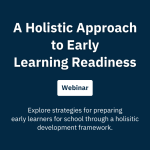Reconciliation in the Workplace
What does your job have to do with reconciliation? This post is about reconciliation in the workplace, regardless of the workplace. After reading, you’ll be able to implement some of these suggestions right away! Before we get started, think about your own workplace. Start by reflecting on these questions:
- Do you have any Indigenous coworkers? If so, what is your relationship with them?
- If you do not have any Indigenous coworkers, why do you think that is?
Your answers to these questions can tell you a lot about your relationship with Indigenous people. Even if you have not considered your role in reconciliation or what your career has to do with it, you certainly have a role to play. Reconciliation is everyone’s responsibility.
The Truth and Reconciliation Commission’s 94 Calls to Action impact every Canadian citizen.
Why Reconciliation Matters in the Workplace
Reconciliation involves recognizing and addressing the historical and ongoing injustices faced by Indigenous Peoples. If you answered that you don’t have any relationship with your Indigenous coworkers, or that you don’t have any at all, your workplace may need to consider its role in the ongoing systemic oppression Indigenous Peoples still encounter. As workplaces are a microcosm of society, they play a crucial role in shaping attitudes and behaviours toward reconciliation.
The Indigenous population is one of the youngest and fastest-growing in Canada. Excluding Indigenous Peoples from the economy means ignoring massive amounts of talent and ingenuity. The Indigenous economy is one of the fastest growing in Canada. Our society, the Canadian economy, and the environment would benefit from respectful and sincere partnerships with Indigenous Peoples.
Reconciliation is not just about economic benefits. It’s also about being good human beings. We can’t be complacent about inequities in our society, and we all need to take steps to work toward reconciliation.
Steps You Can Take
Reconciliation can manifest in many ways in the workplace, from fostering an inclusive environment to ensuring equitable opportunities for all employees. Here are some ideas to help you work towards reconciliation in your organization.
Educate Yourself and Others
Understanding the history and context of Indigenous Peoples in Canada is the first step. Consider organizing or participating in training sessions or workshops on Indigenous history and cultural sensitivity, like the University of Alberta’s free Indigenous Canada course. Share resources and encourage conversations among your colleagues. Truth and Reconciliation Week, held annually in September, includes lots of free, online events and is a great place to kickstart your learning.
Create Inclusive Policies
Work with your HR department to review and, if necessary, revise workplace policies to ensure they are inclusive and supportive of Indigenous employees. This could include recognizing Indigenous holidays, offering flexible work arrangements for cultural practices, and providing support for Indigenous-led initiatives. You can also consider how your hiring practices may present barriers to Indigenous applicants and ways you can encourage Indigenous peoples to apply for roles in your organization.
Support Indigenous Voices & Build Relationships
Amplify Indigenous voices by supporting Indigenous-led projects, hiring Indigenous consultants, or inviting Indigenous speakers for events. Encourage your organization to source products and services from Indigenous businesses. Canada’s business landscape is changing, and it will be difficult, if not impossible, for organizations to ignore Indigenous Peoples moving forward.
Be sure to follow the appropriate Protocols for inviting an Indigenous Knowledge Keeper or Elder to speak at an event. If you aren’t sure, ask! It is your responsibility to ask questions and learn the correct Protocols, such as giving a gift. Be prepared to extend an invitation in person, well in advance and to compensate speakers for their time. Finding your local Band Office or Friendship Centre is a great way to connect with your local Indigenous community(ies) if you’re not sure where to start.
Foster genuine relationships with Indigenous colleagues and communities. This can involve participating in community events, learning about local Indigenous cultures and histories, and showing respect and openness in all interactions. Start attending Indigenous events in your community as well! If you are not sure how you can participate, your Friendship Centre is an excellent resource.
Reflect and Act
Regularly reflect on your attitudes and behaviours and seek feedback from Indigenous people. Be willing to listen, learn, and make changes where necessary. Work with your coworkers to regularly engage in conversation and reflection. Consider implementing a designated time to come together and discuss what you have learned from the Indigenous communities around you, events you have attended, and reconciliation efforts. Make this type of learning a regular part of your organization’s activities. Remember, reconciliation is an ongoing process that requires continuous effort and commitment.
Conclusion
Reconciliation in the workplace is not just an organizational responsibility but a personal one. Each individual has the power to contribute to a more inclusive and equitable society. By taking these steps, you can help create a workplace that respects and values Indigenous cultures, histories, and contributions.
Remember, reconciliation is a journey. It requires patience, dedication, and a willingness to learn. But with each step you take, you are contributing to a brighter, more inclusive future for everyone. Start today, and inspire others in your workplace to join you.







